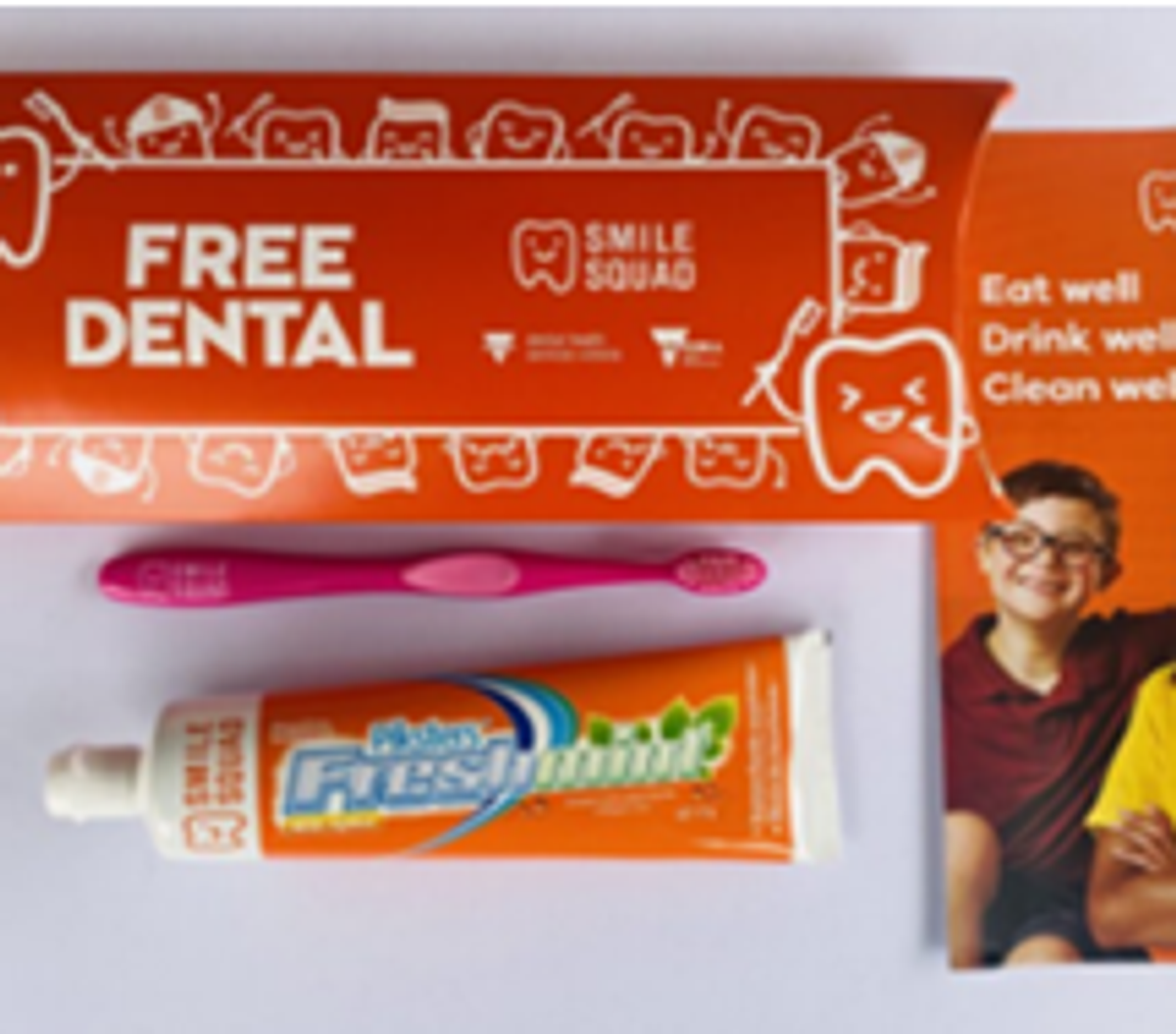The Wellbeing Page
Supporting students to stay happy, safe and connected...

The Wellbeing Page
Supporting students to stay happy, safe and connected...
Smile Squad Free Oral Health Packs
Smile Squad oral health packs
All children deserve a healthy smile, and the Smile Squad free school dental program is working hard to help make sure this happens. All students enrolled in government schools are eligible to receive a free oral health pack every year.
Your child(ren) will soon receive a free oral health pack to bring home. The pack contains a toothbrush, full sized toothpaste, and an oral health brochure. Please take the time to read the brochure. It’s full of helpful hints and tips to help your whole family eat well, drink well and clean well – for life.
Standard strength toothpaste
Smile Squad provides standard strength fluoride toothpaste that is generally used by ages six and over, unless recommended by a dental or trained health professional.
If your child is under six, please talk to a dental or trained health professional to find out if your child might benefit from using this toothpaste. You can also choose to put the toothpaste away until they turn six or give it to someone else in your family to use.
About Smile Squad
Smile Squad is a Victorian Government program that provides free dental care to all Victorian government primary, secondary and specialist school students.
You can access free dental for students by calling your local community dental clinic Better Health Network and asking for a Smile Squad appointment.
Visit the Smile Squad website at: www.smilesquad.vic.gov.au to learn more.




How to Keep your Child Safe Online:
Have open conversations, often
The most important tip we can give you is to start talking to your child regularly about their online activities and interactions.
Supervision is essential
This means knowing what your child is doing online, who they are interacting with and what platforms, apps or games they are using.
Be approachable if your child needs help
Coming forward isn’t always easy and your child may feel reluctant to tell you about online issues if they believe they will be punished or have their devices taken away. This also makes children more secretive about device use and at greater risk of exploitation.
Check privacy settings
We recommended that you research and understand app settings, including privacy settings. This could include turning off location settings, setting profiles to private, or turning off chat functions.
Know how to report
If something goes wrong online, it is critical your child is supported. You need to know how to take action and report.
Supervising your child online:
One of the most important habits to prevent online child sexual exploitation is online supervision or regular oversight of your child’s online activities.
Online child sexual exploitation can happen if your child is using the internet alone or without supervision. This includes the potential for sharing self-generated child abuse material, online grooming and engaging with offenders.
Supervision or oversight can be different for different families. It can also be different depending on your child’s age and what they do online.
Supervision can involve:
Supervision is not only critical to prevent an incident occurring, but can also be a way for you to quickly take action if something goes wrong.
If your child is using a connected device, they may access content or have interactions that you may not always know about.
Constant supervision is recommended for this age group so that you have full oversight of the types of apps or games they’re using and whether they’re interacting with other people.
Your child should understand the importance of asking for your permission before using a device. This will also help you know when they’re online.
You may also set expectations around your child’s device use at home, which can include restricting connected devices to family areas such as the kitchen or living room.
ThinkUKnow's Family Online Safety Contract can help you have discussions with your child about their device use and manage supervision at home.